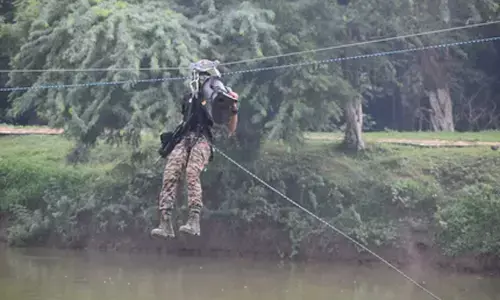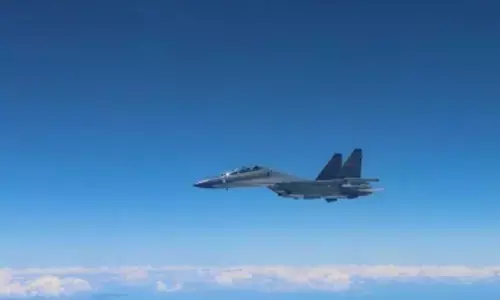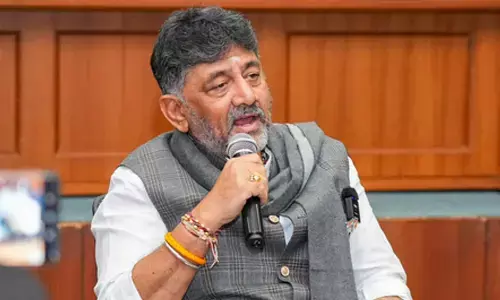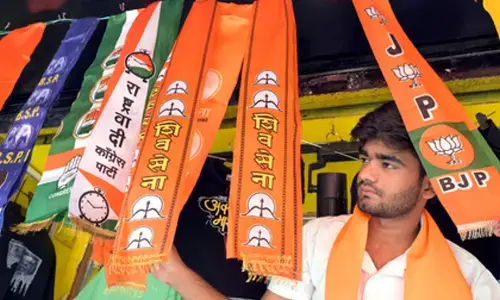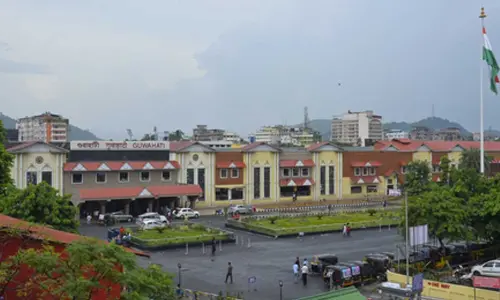Deciphering the talks
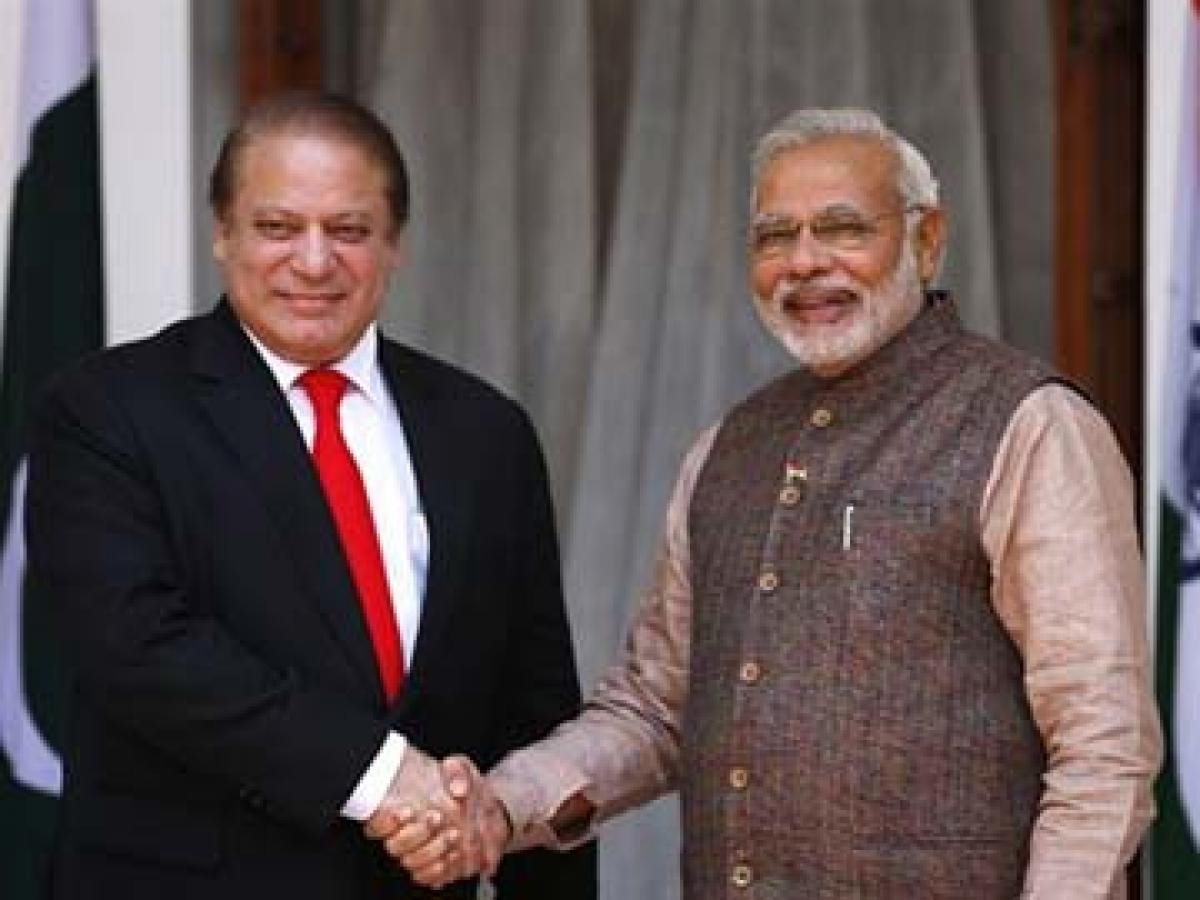
Political reactions to the meeting of Prime minister of India Narendra Modi with the Prime Minister of Pakistan, Nawaz Sharif, are on predictable lines.
Political reactions to the meeting of Prime minister of India Narendra Modi with the Prime Minister of Pakistan, Nawaz Sharif, are on predictable lines. The BJP’s inference that the joint statement means Pakistan accepting India’s definition of terror is farfetched and counterproductive. It may be recalled that the chauvinistic defence of India’s operations inside the territory of Myanmar invited adverse reactions.
The Congress called this meeting a hypocrisy. The BJP made similar statements whenever the UPA government tried to talk with the hostile neighbour. Even as the two nations condemned terror in all its forms and agreed to eliminate it, the Border Security Force had to pay homage to a martyr jawan. This is certainly a contradiction of sorts.
But, Indian diplomacy has to move on despite many such contradictions. Foreign Minister Sushma Swaraj earlier said India would not talk to Pak as long as the Mumbai riots mastermind Lakhvi freely roams in Pakistan. But, within a month the Prime minister chose to talk to his Pak counterpart, though there is no progress in the Mumbai riots probe.
Surely, diplomacy, especially in regard to the Indian sub continent, cannot be held hostage to hawkish positions. We cannot choose our neighbours. Nor can we alter geography. Learning to live together is the art of diplomacy. Talking to each other even if it does not yield anything is also part of diplomatic engagement.
The joint statement cannot be interpreted as neighbour’s climbdown. Such a hasty assumption may lead to complacency. Diplomatic pendulum should not swing between complacency and confrontation or obduracy and hypocrisy.The government has to explain how an abettor of terror can join us in eliminating it. Now the Pakistan can show the Indo-Pak joint statement as a testimony to its commitment to fight terror.
The joint statement disarms India as it always called Pakistan a perpetrator, but not a collaborator in fight against terror. It is, in fact, the United States which admitted Pakistan, the prime breeder of terror in the world, as a frontline ally in the war against terror. Now, India seems to be toeing the same line.
There has been a fundamental difference in the approach of India and United States. The US considers Pakistan as part of the solution to the menace of terror while India considers Islamabad as part of the problem. The joint statement accords Pakistan the status of a partner in eliminating terror. If this is only diplomatic niceties, such expression of good intent is acceptable. But our foreign policy cannot be oblivious to the situation on the ground.
However, exchange of fishermen and promotion of religious tourism are certainly good confidence-building measures. Many more such moves are needed to normalise the situation. The resumption of military-to-military contact would be the most welcome feature of the summit as it would help de-escalate tension along the Line of Actual Control. It is not right to expect immediate deliverables from Pak in a single summit meeting. But, India and Pak resuming dialogue itself is a positive development.








